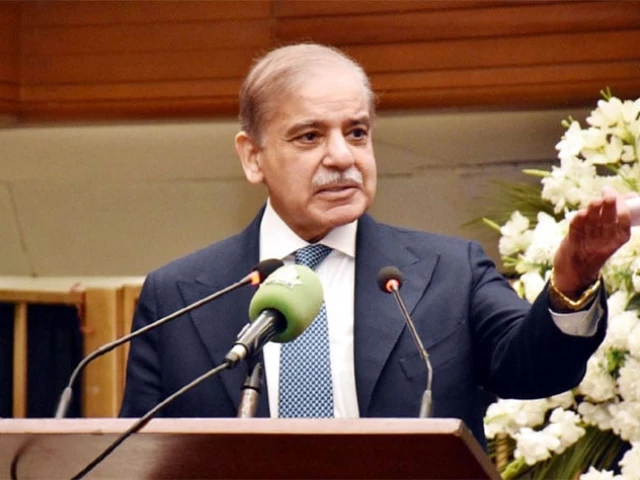PM pledges to uphold universal healthcare access on World Health Day
PM calls for better care systems to meet maternal and newborn health challenges

Prime Minister Shehbaz Sharif on Monday reaffirmed his government’s commitment to ensuring quality healthcare facilities for all citizens, especially mothers and newborns.
Marking World Health Day 2025, the Prime Minister said this year’s global theme — “Healthy Beginnings, Hopeful Futures” — reflects the critical need to prioritise the health of babies from birth and the wellbeing of mothers.
In a statement issued by his office, Shehbaz acknowledged the progress Pakistan has made in improving maternal and child health, but admitted that significant gaps remain.
“There is still a long journey ahead,” he said. “We must further develop our healthcare system to confront medical and social challenges that affect maternity and neonatal health.”
The prime minister stressed the need for a comprehensive approach to healthcare reform, one that integrates technological innovation, public-private partnerships, and investment in education, nutrition, and the environment.
“Our government is committed to utilising modern technology and building strong partnerships to improve public health infrastructure,” he said.
He also called for a multi-sectoral strategy to address the broader issues affecting health outcomes. “Let us reiterate the need for a coordinated and practical approach across healthcare, education, nutrition, and environmental management,” he urged.
World Health Day 2025 also kicks off a year-long campaign led by the World Health Organization (WHO) to end preventable maternal and newborn deaths and improve long-term wellbeing for women and families.
The WHO campaign highlights alarming global figures — nearly 300,000 women die from pregnancy-related causes annually, while over 2 million newborns die in their first month of life, and another 2 million are stillborn. That equates to one preventable death every seven seconds.
According to current trends, four out of five countries are off track to meet the UN’s 2030 targets for reducing maternal deaths, and one in three is set to miss newborn health targets.
The campaign urges governments to strengthen health systems not only to address direct obstetric complications but also noncommunicable diseases, mental health conditions, and the need for family planning services.
It also calls for policies that support women’s rights, reproductive health, and emotional wellbeing, along with better working conditions for midwives, nurses, and frontline workers.
Meanwhile, United Nations agencies warned that cuts to international aid budgets are threatening to reverse decades of progress in reducing maternal deaths, potentially leading to a rise in preventable fatalities during pregnancy and childbirth.
The warning coincided with the release of a new UN report for World Health Day, which highlighted a 40% decline in maternal mortality between 2000 and 2023—largely thanks to improved access to essential health services. However, officials now say that momentum is at risk.
According to the report, Trends in maternal mortality, an estimated 260,000 women died in 2023 from pregnancy or childbirth complications—equating to one death every two minutes.





























COMMENTS
Comments are moderated and generally will be posted if they are on-topic and not abusive.
For more information, please see our Comments FAQ